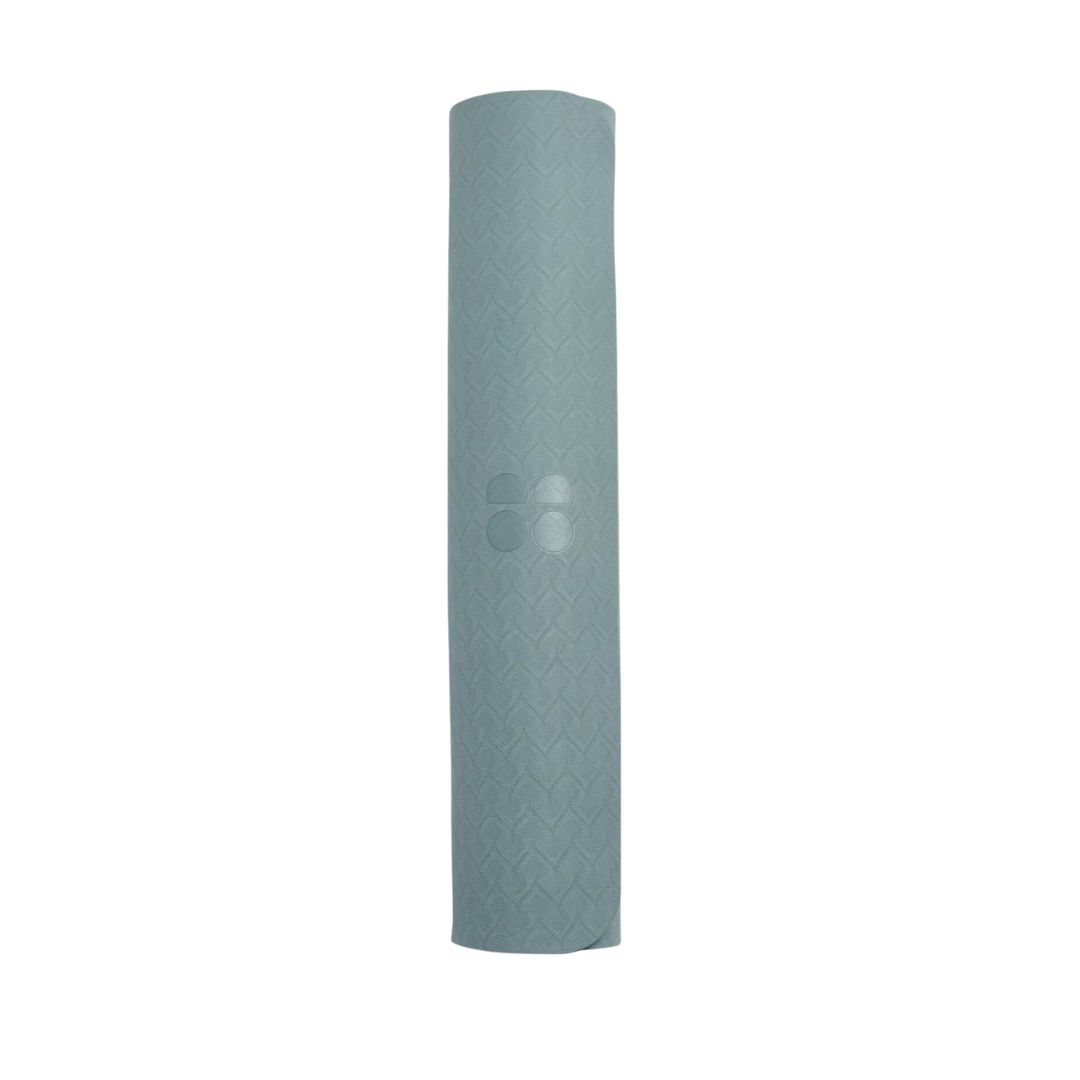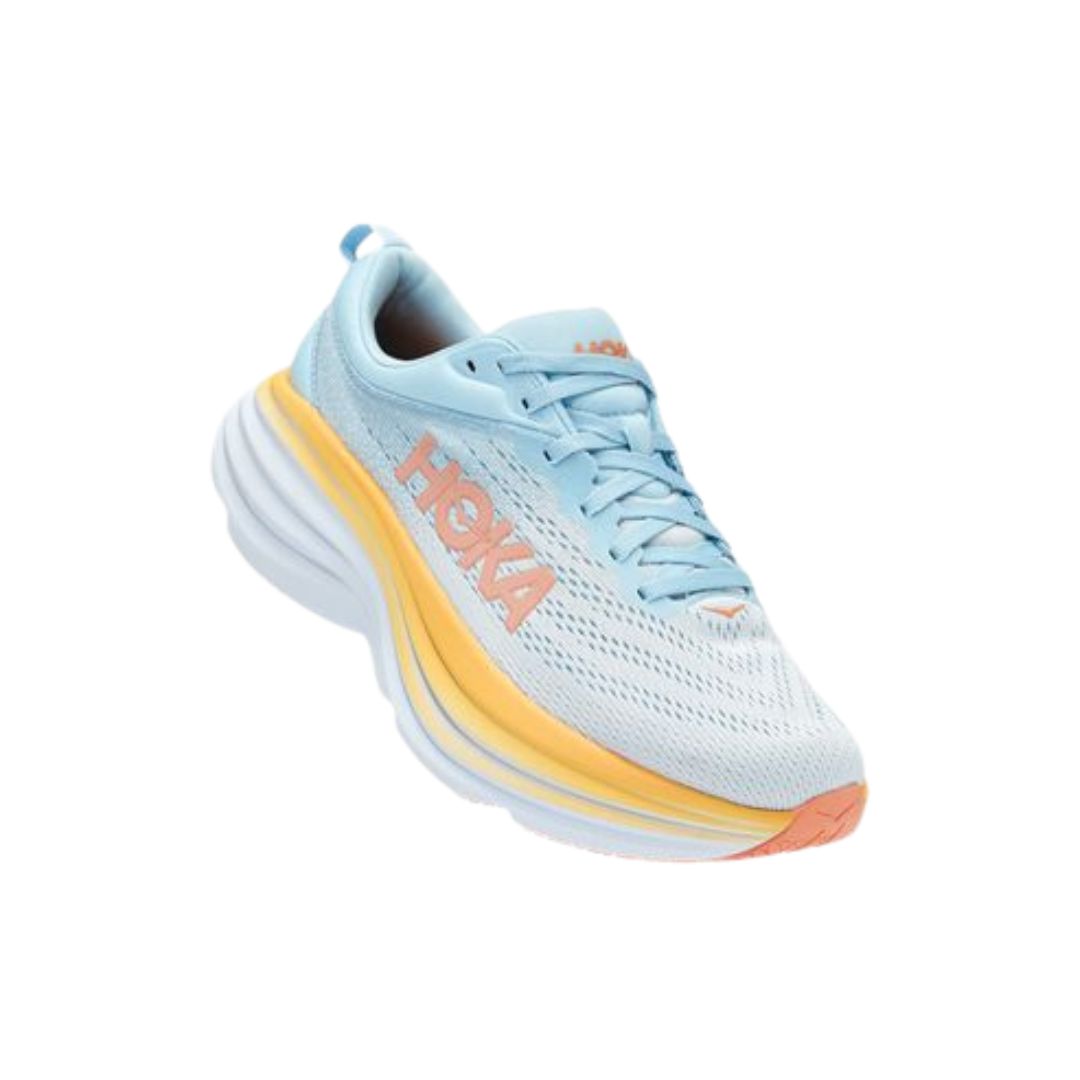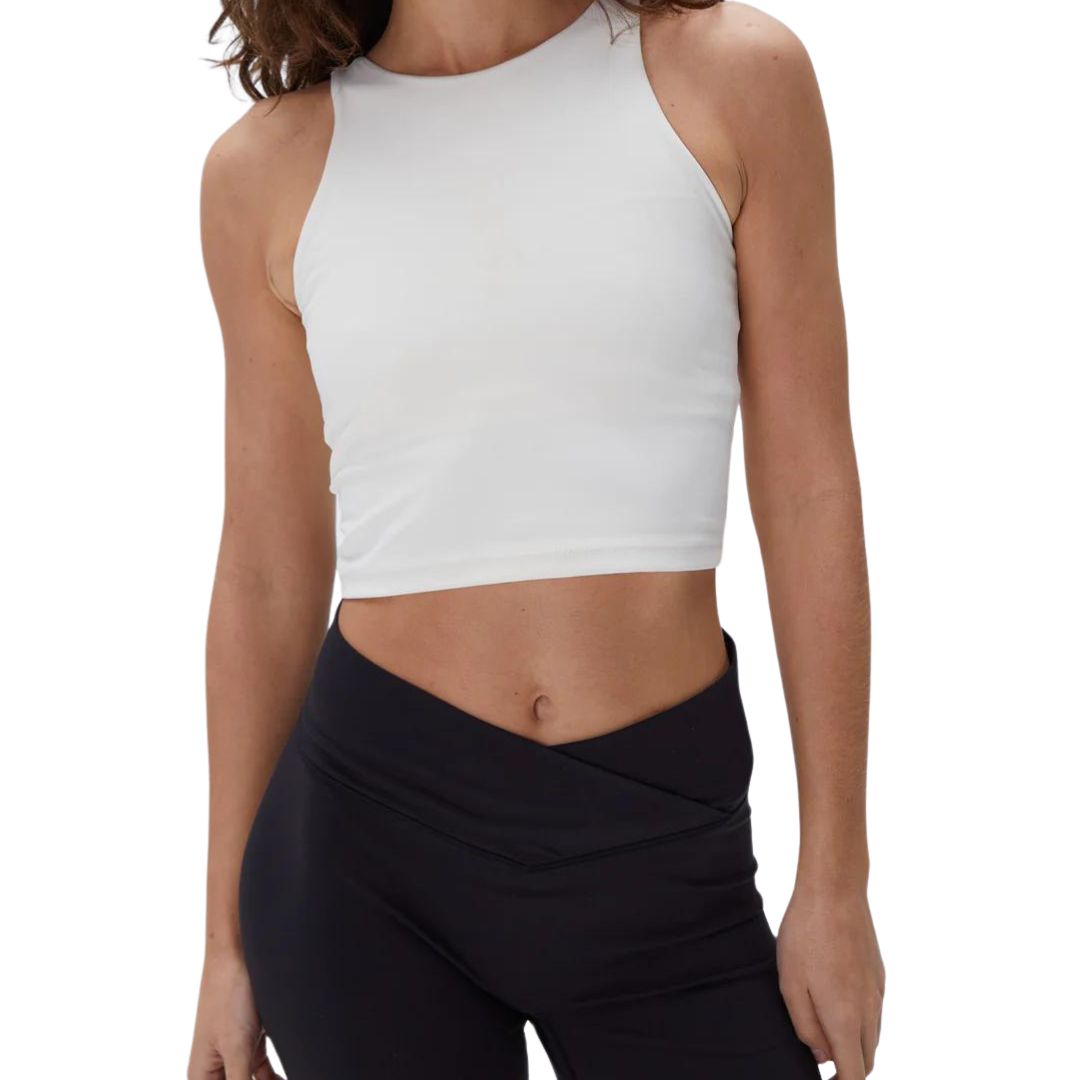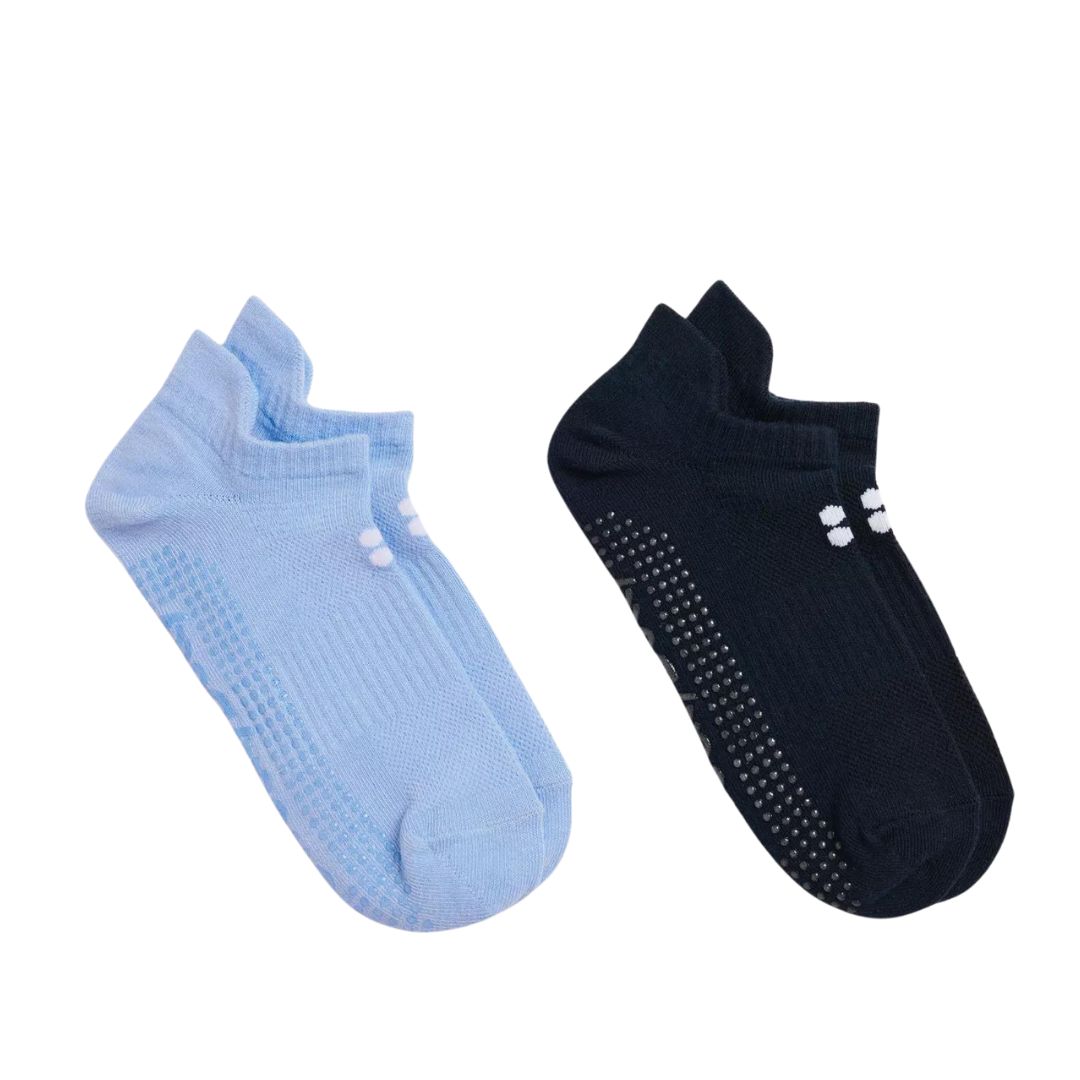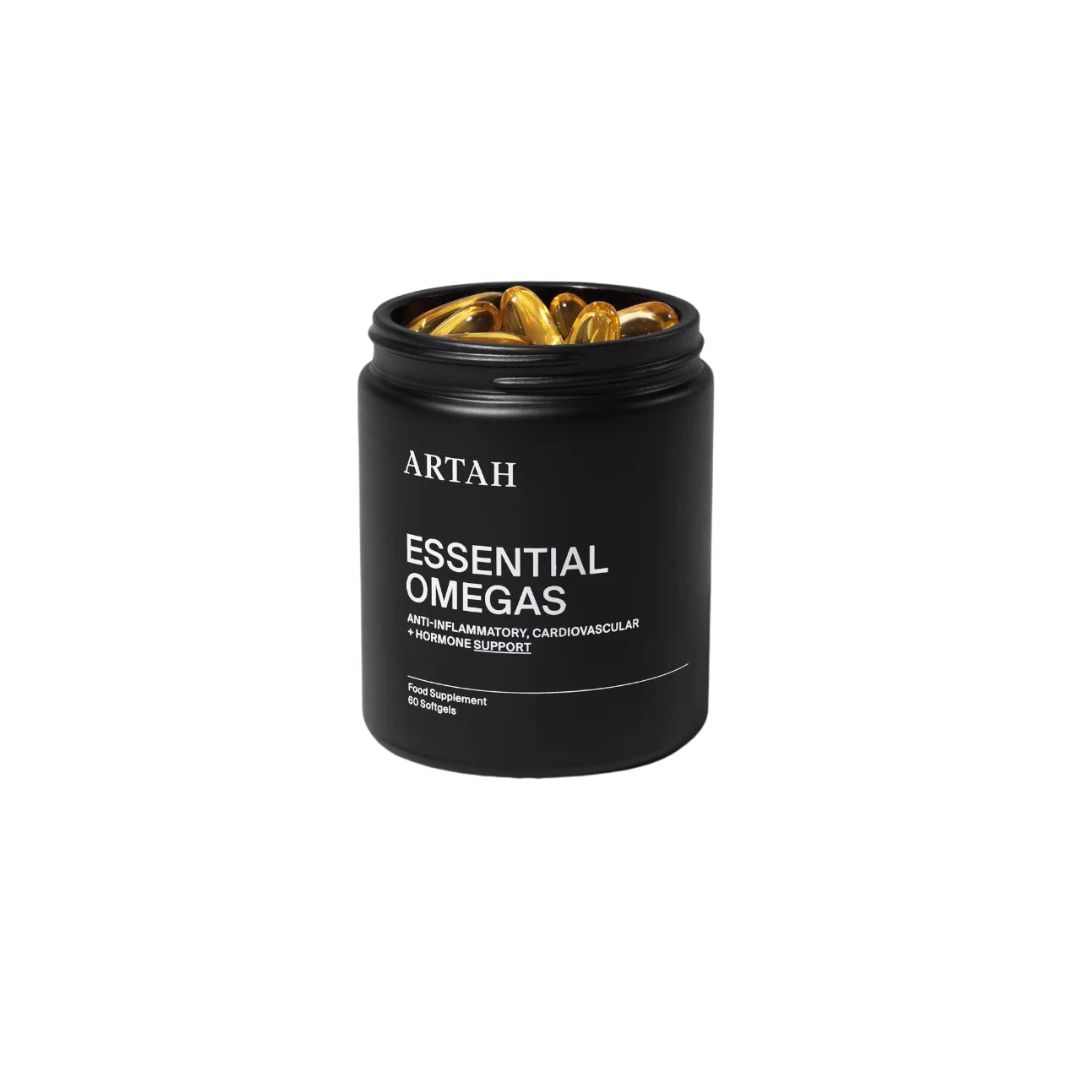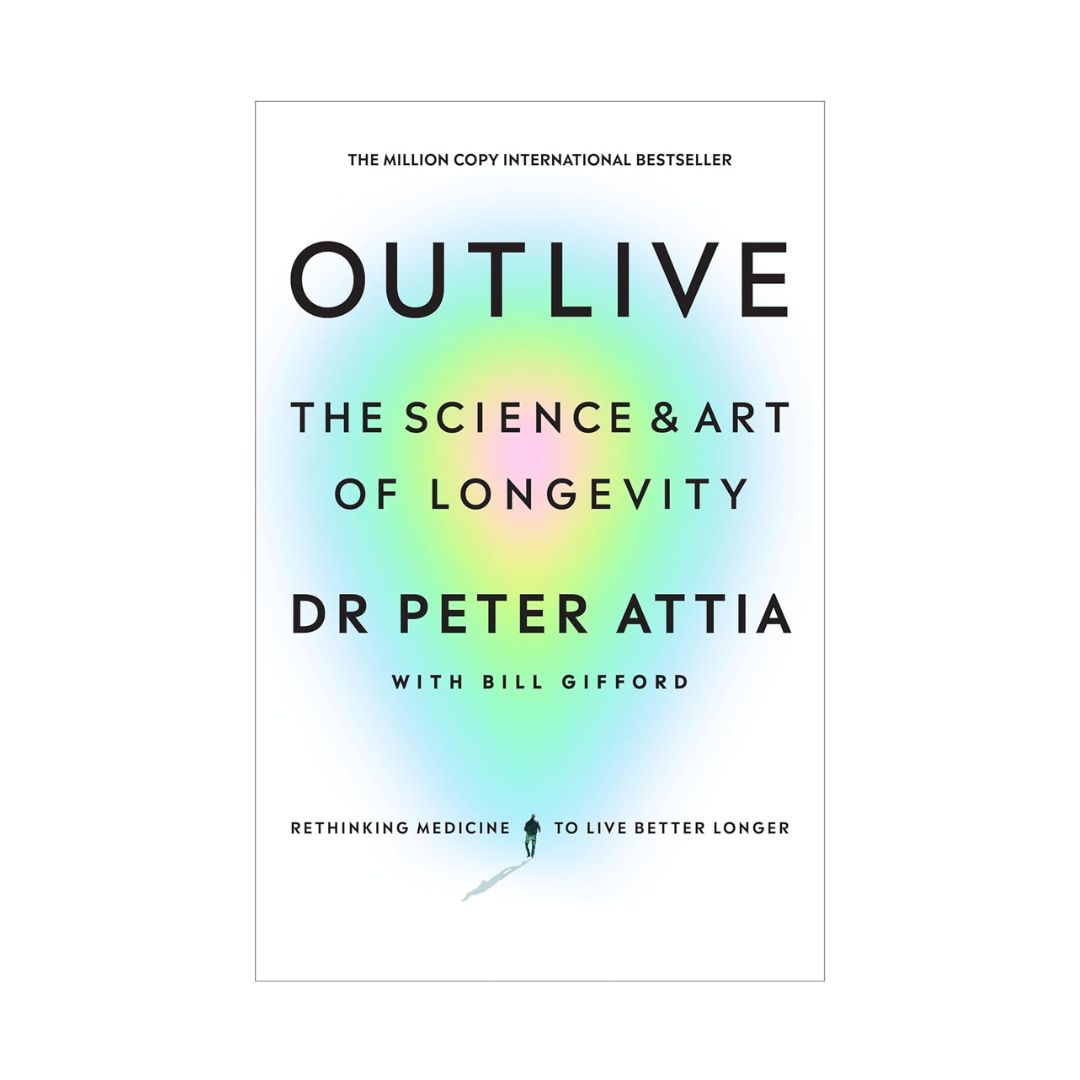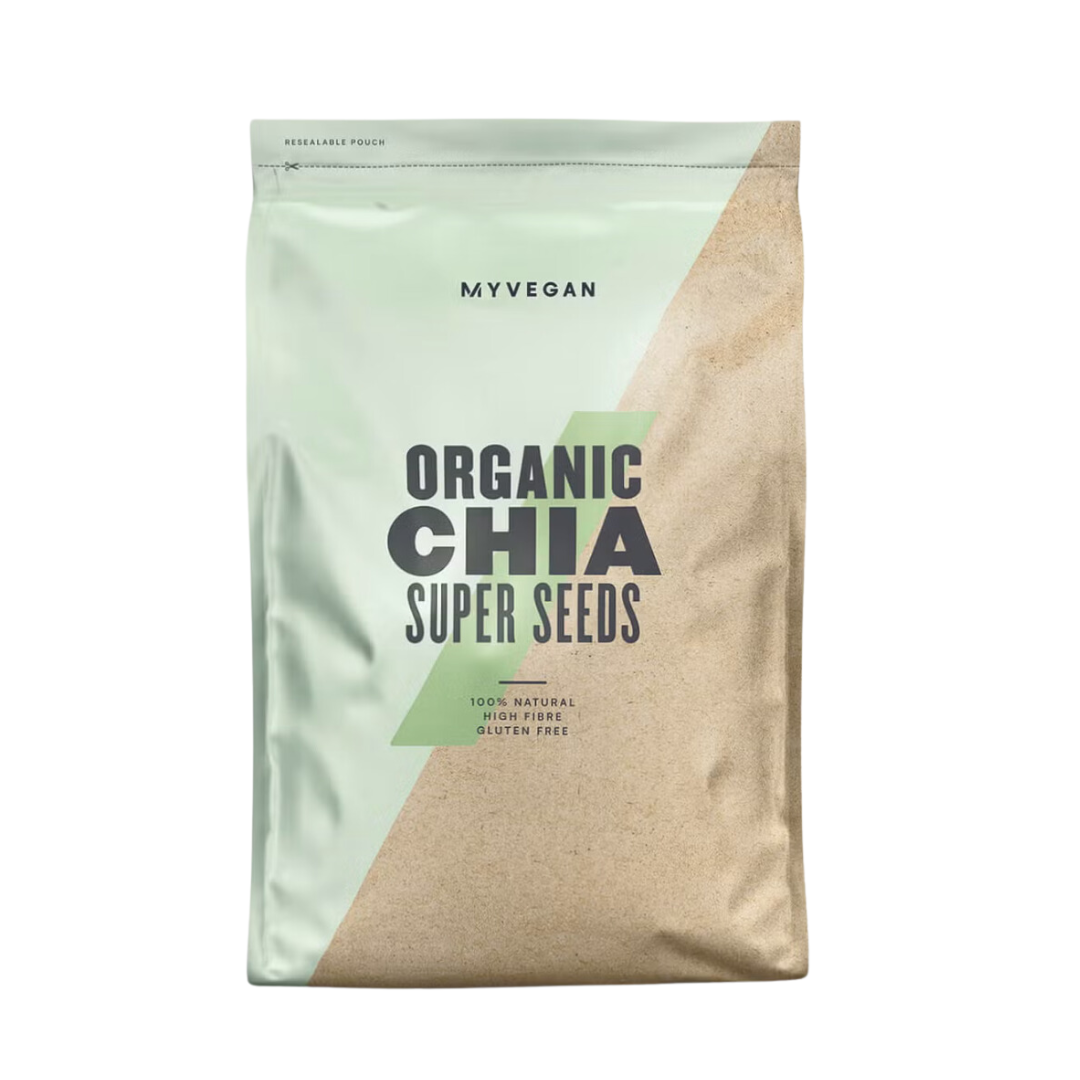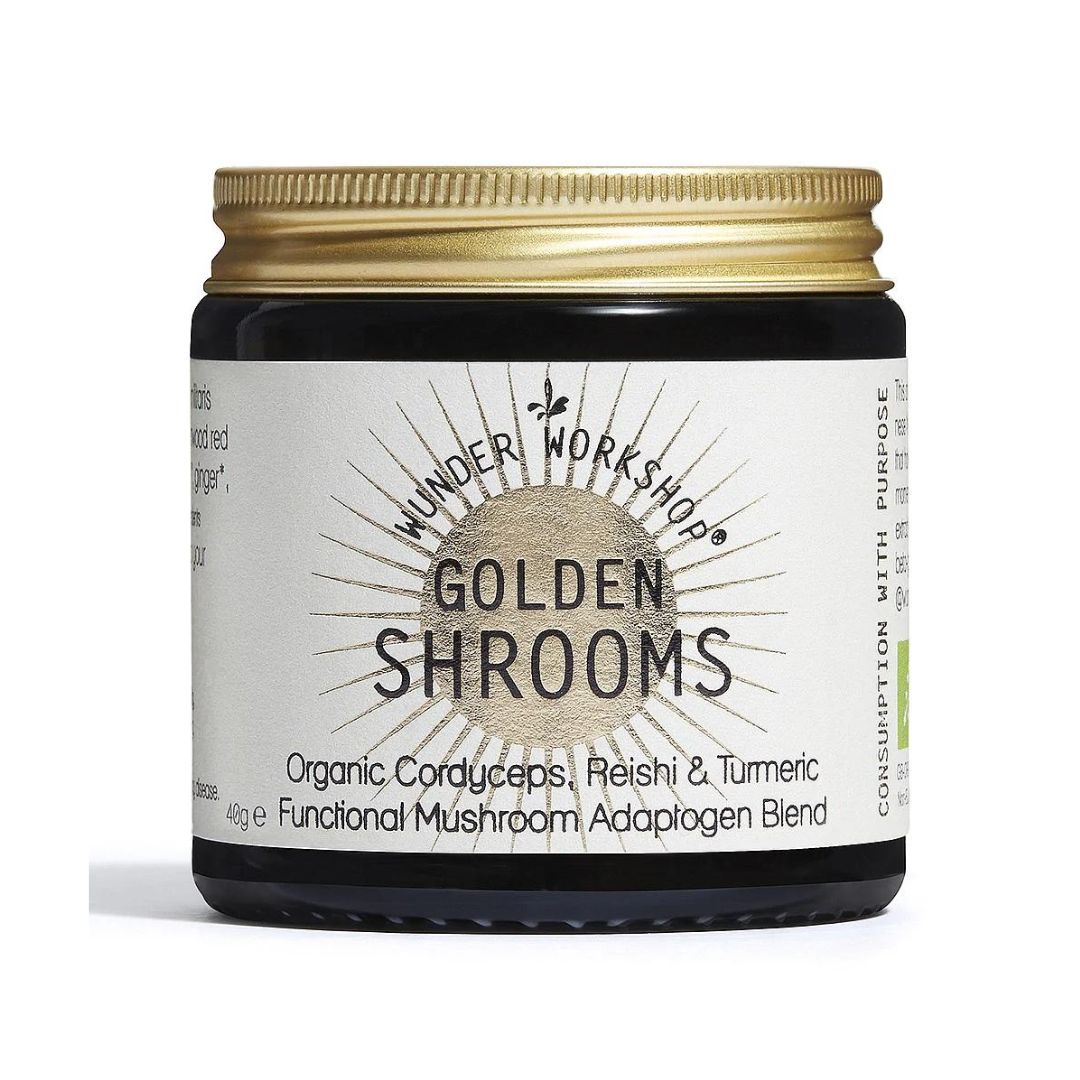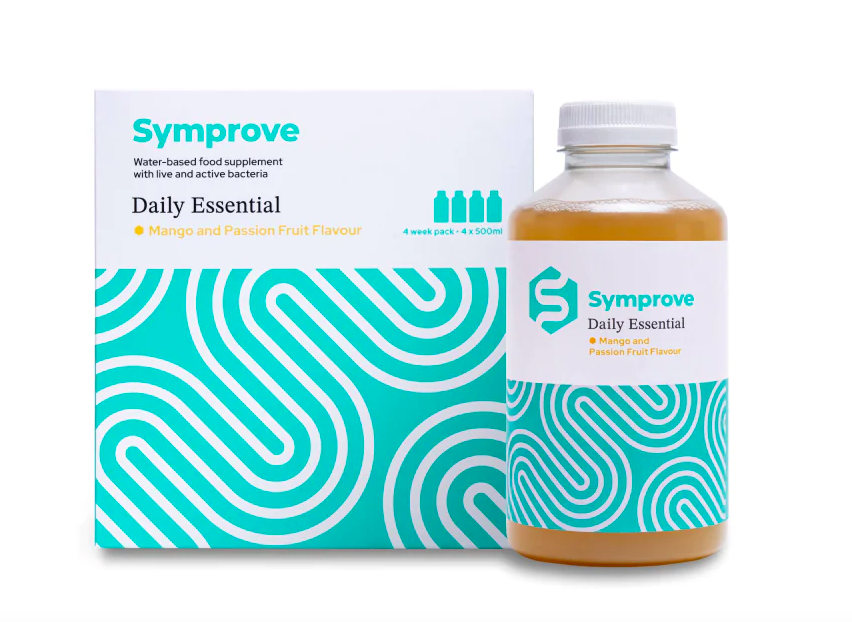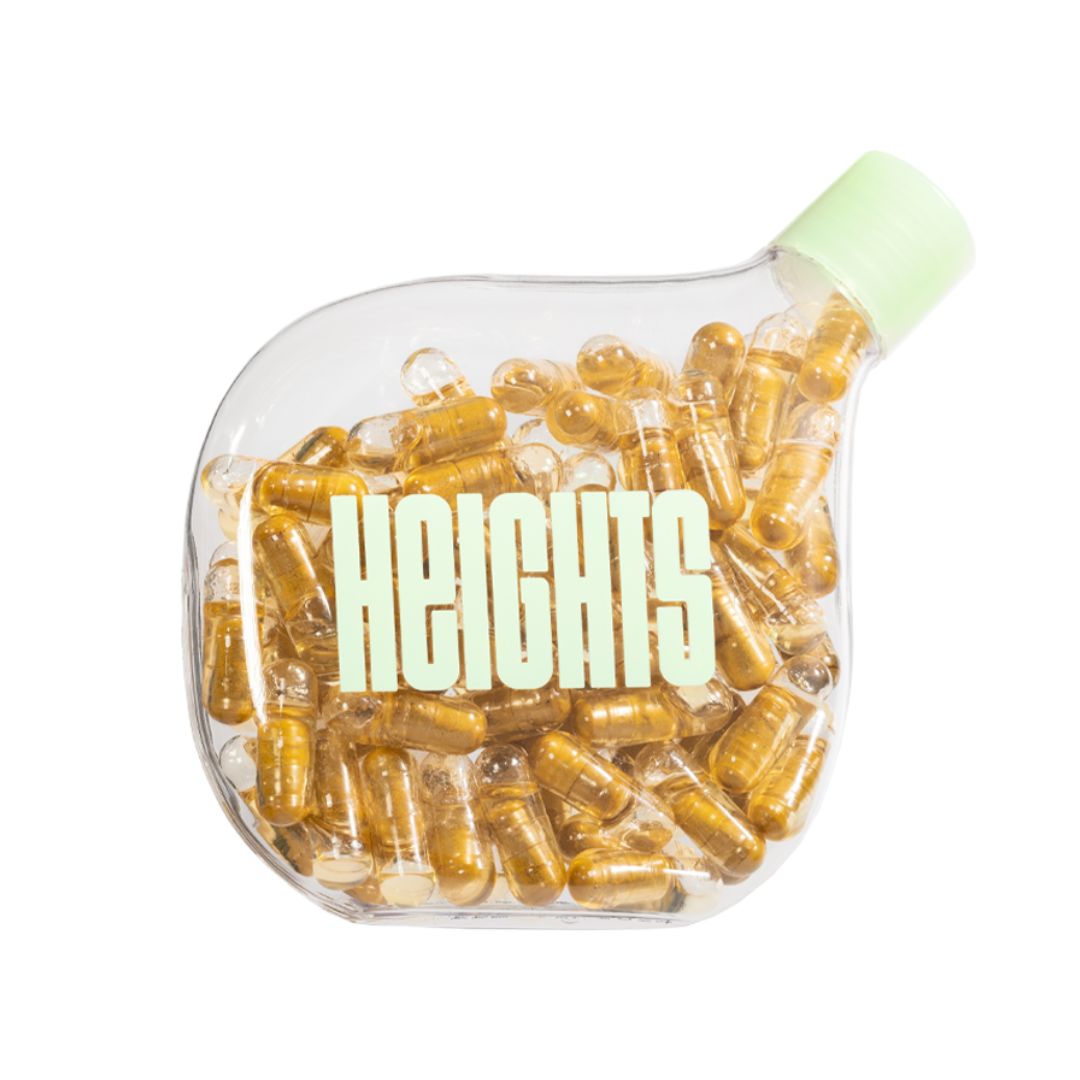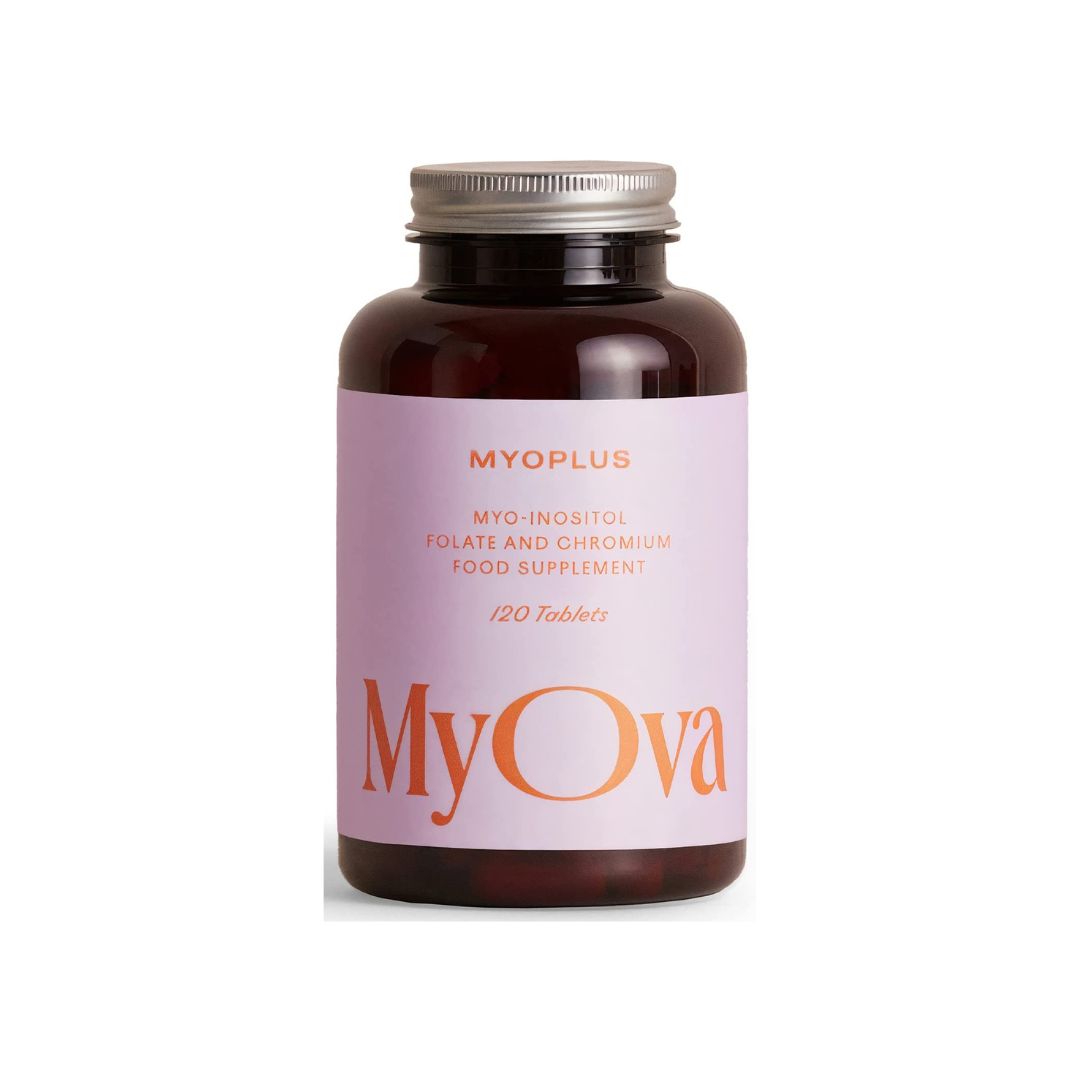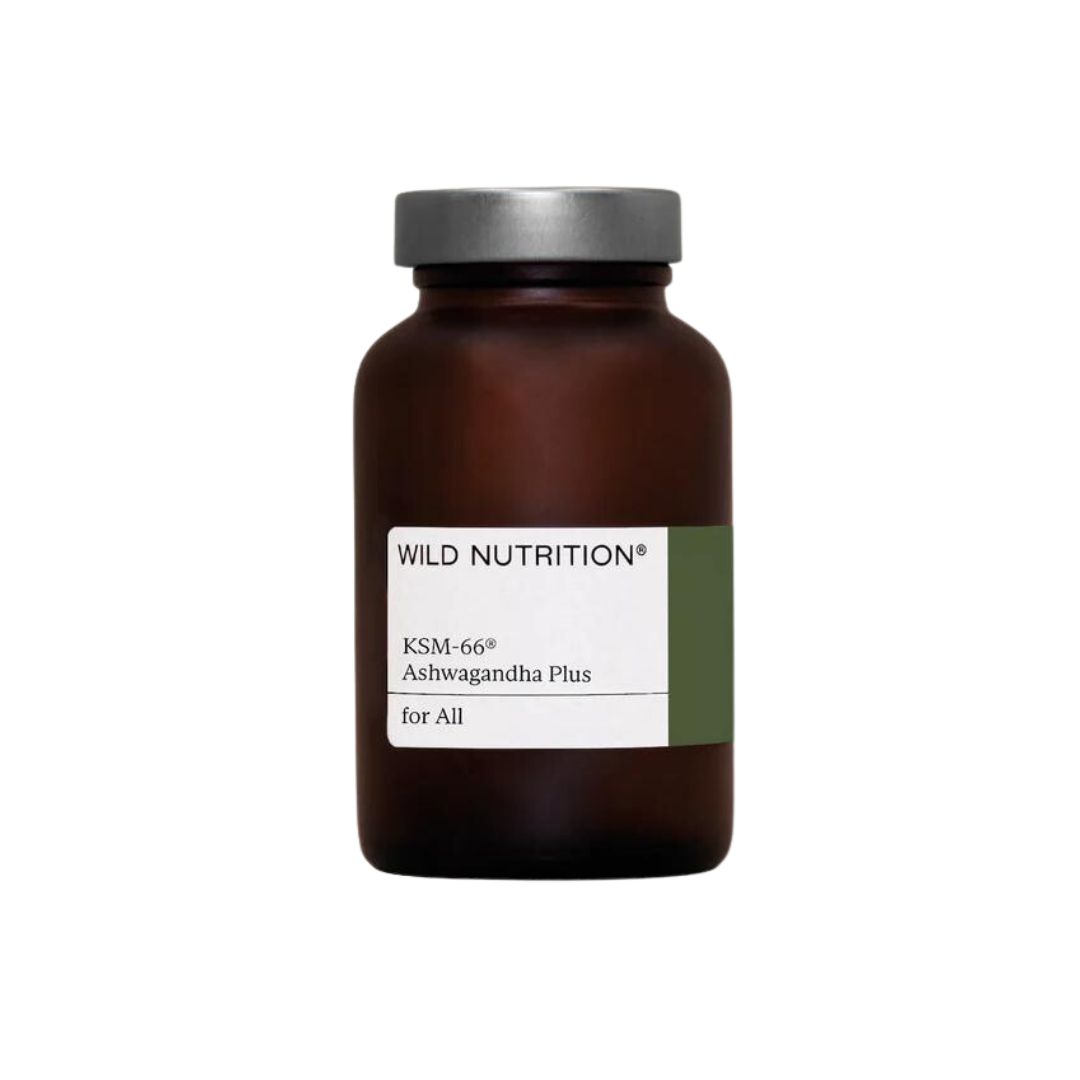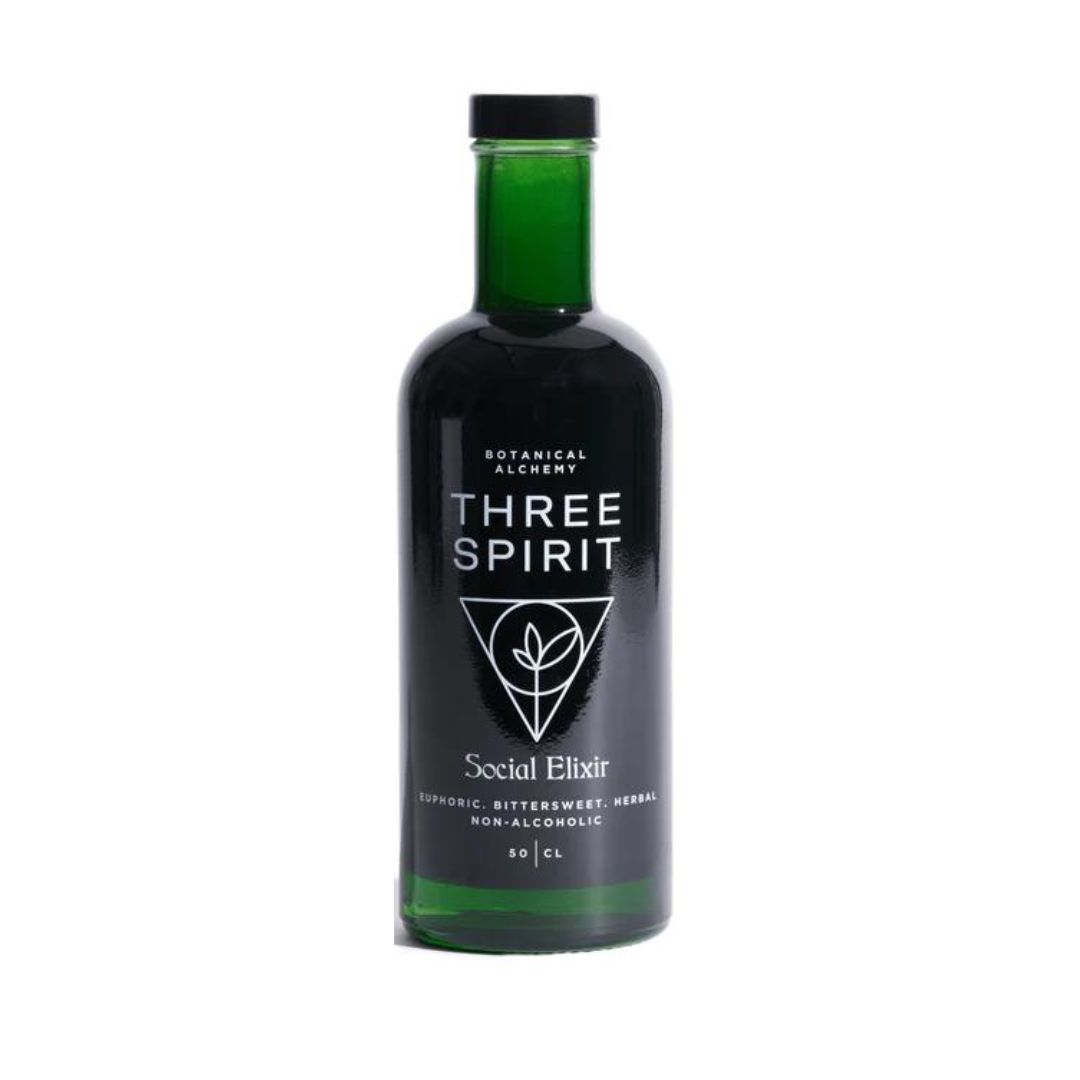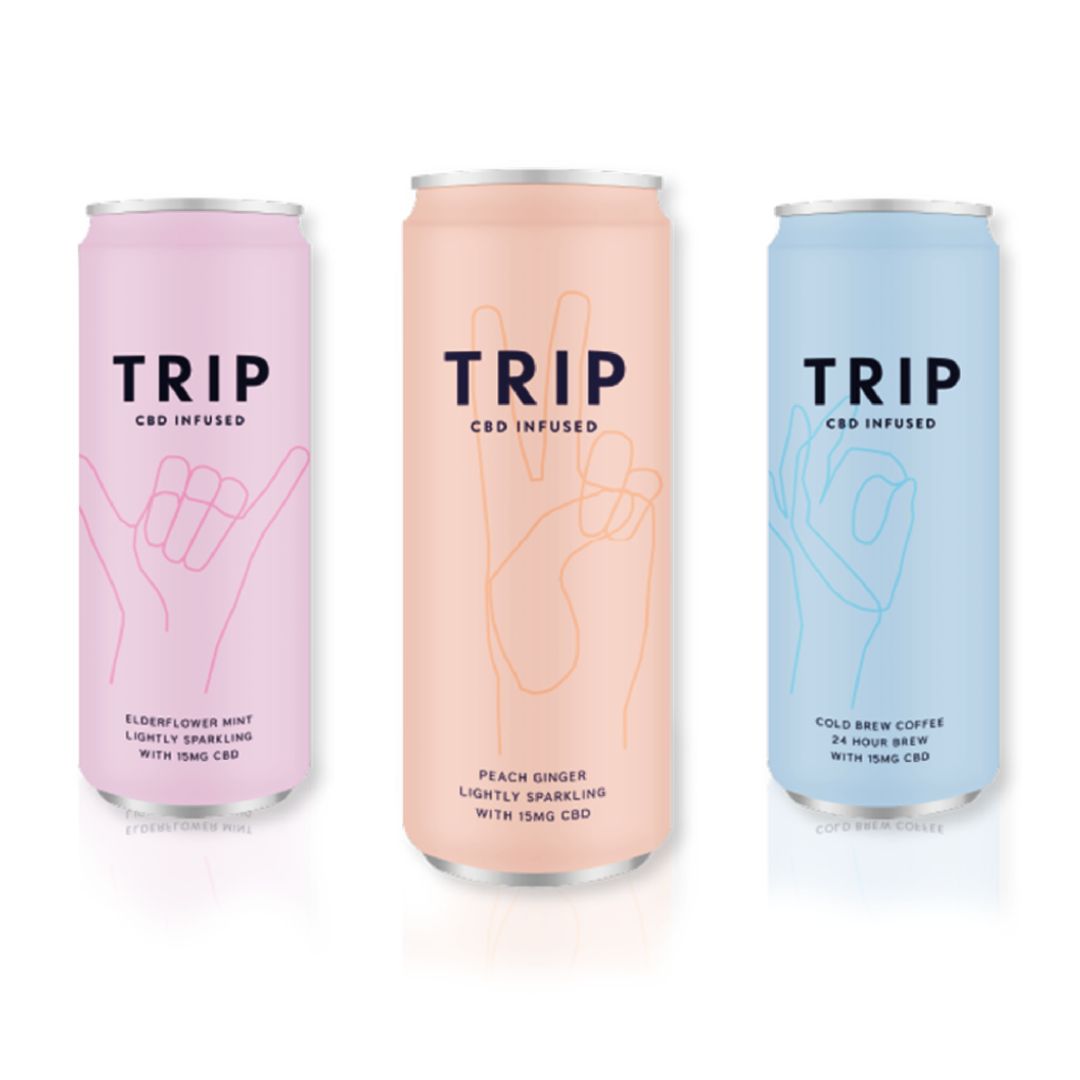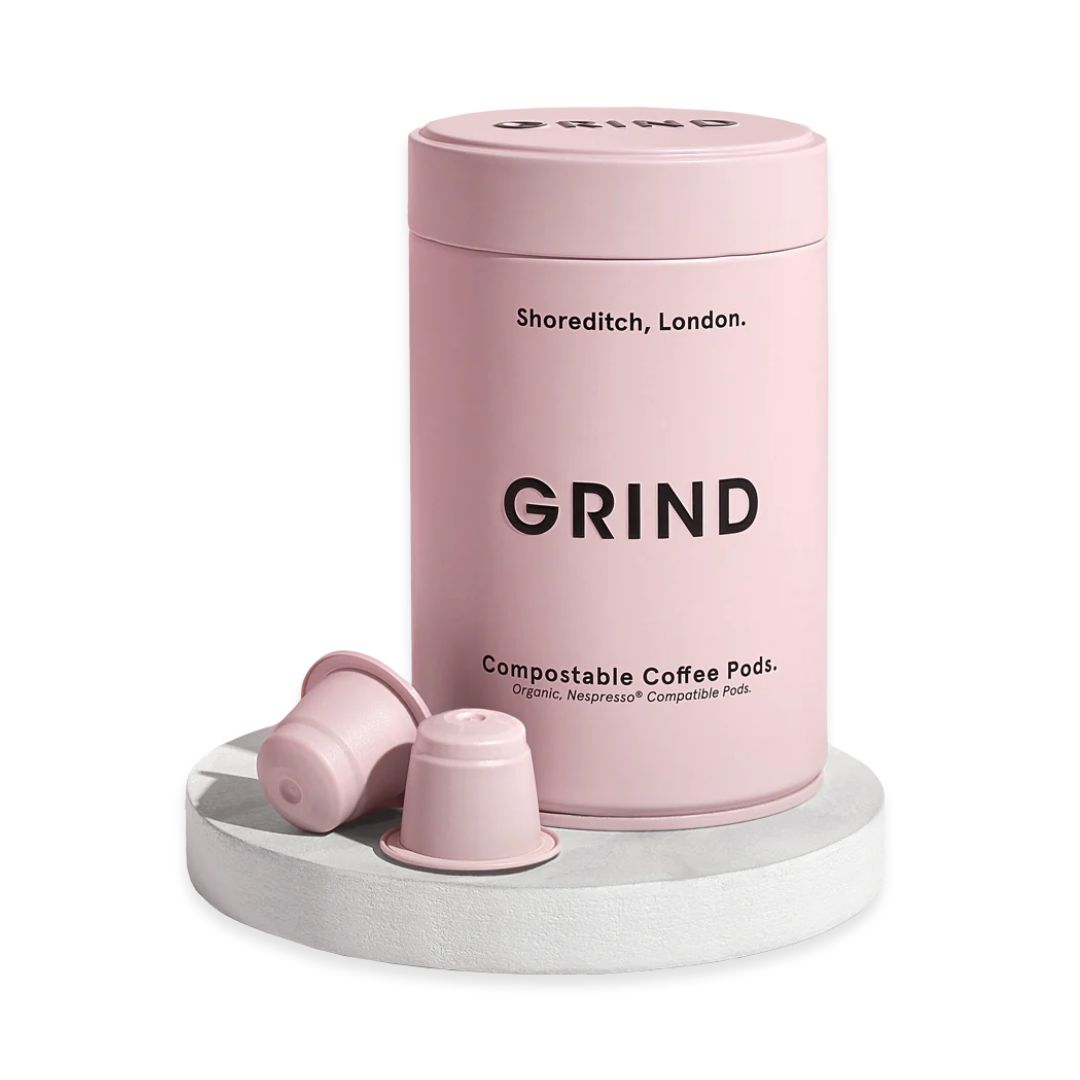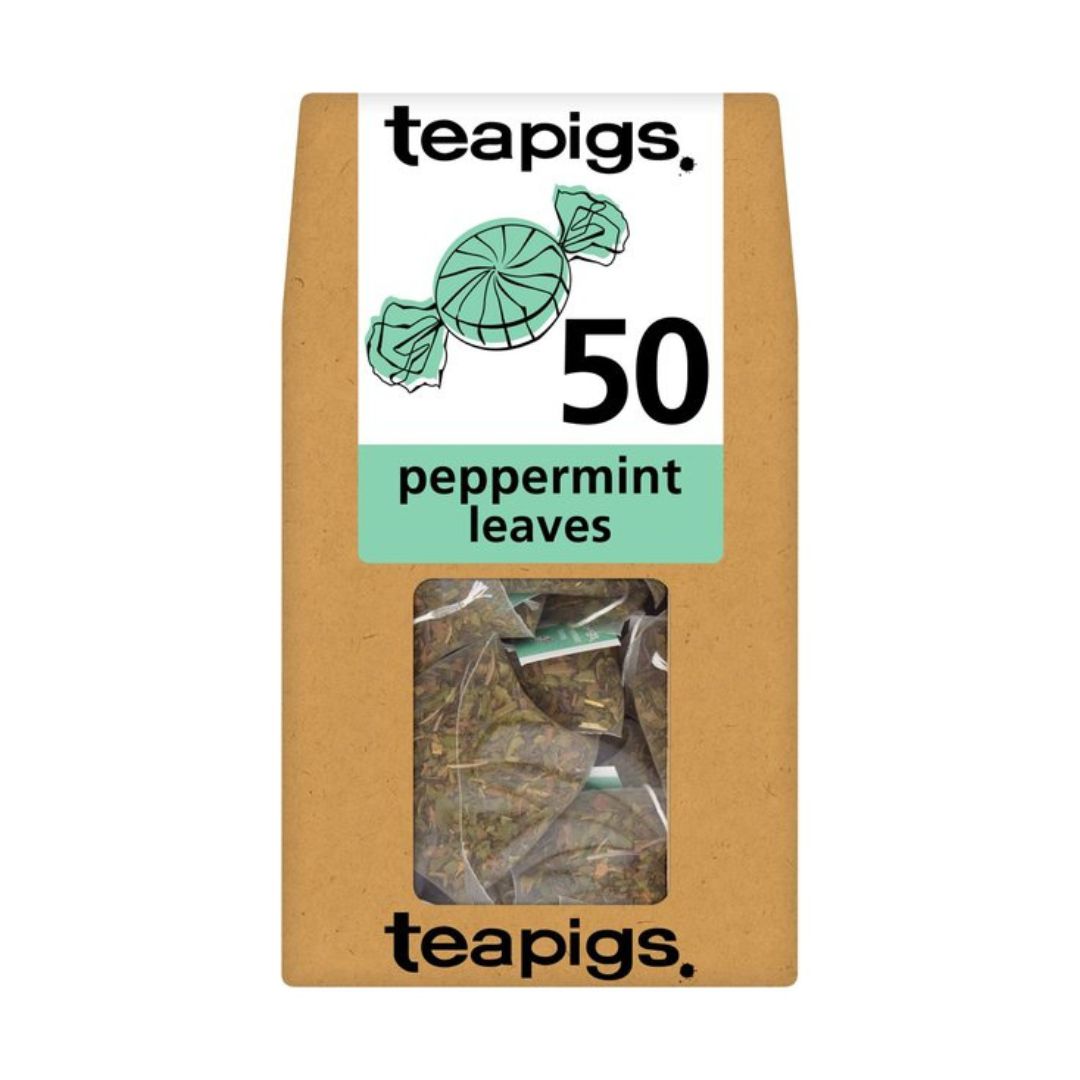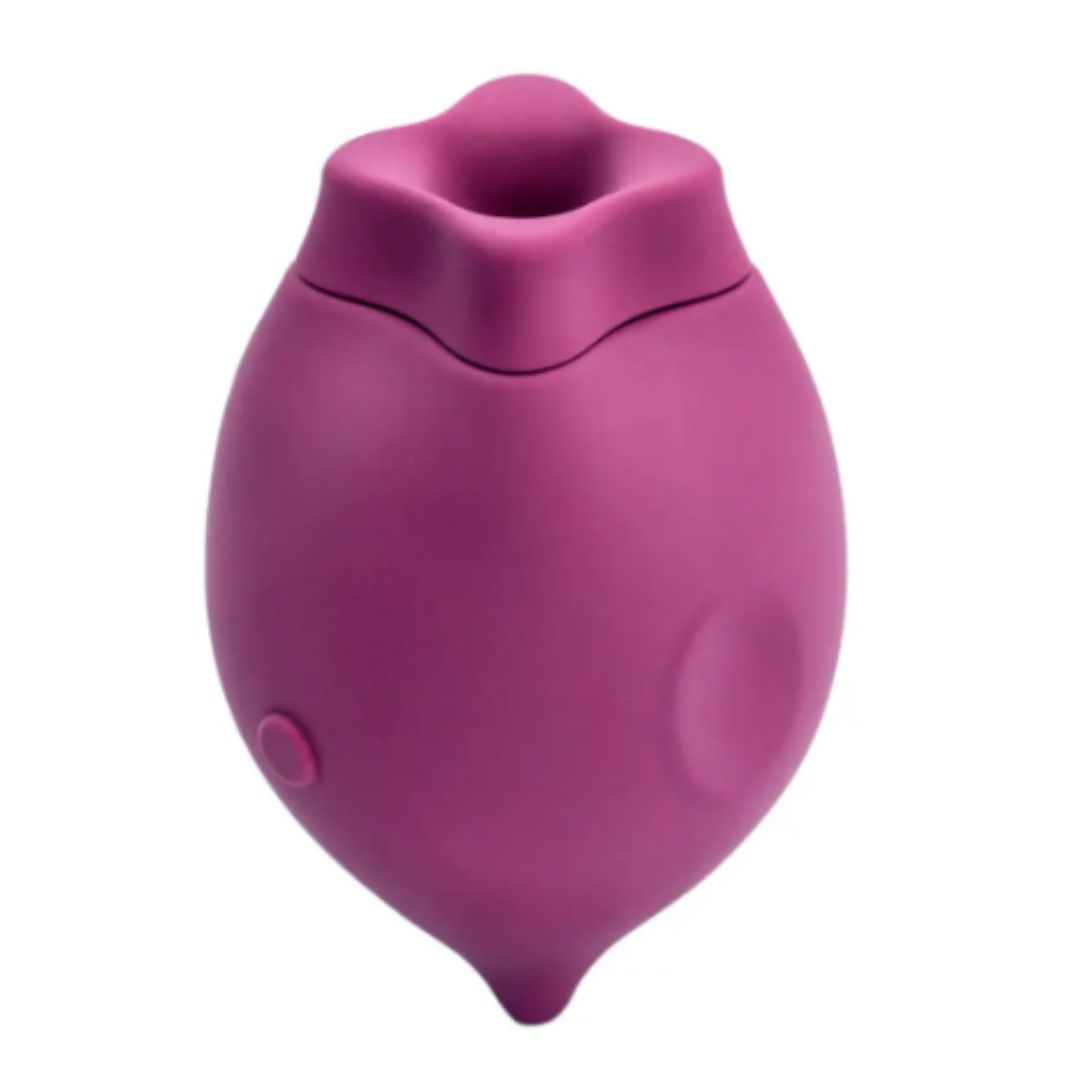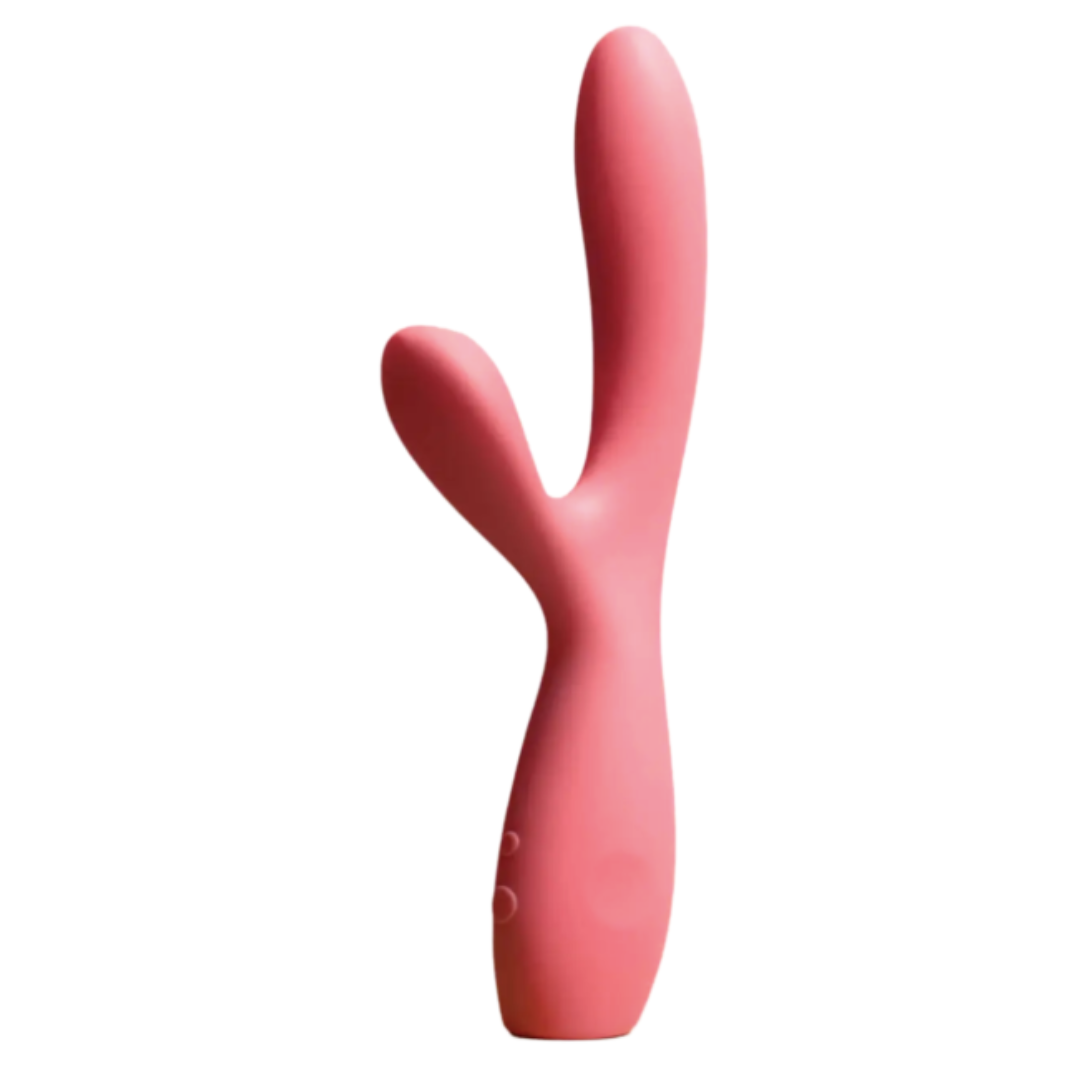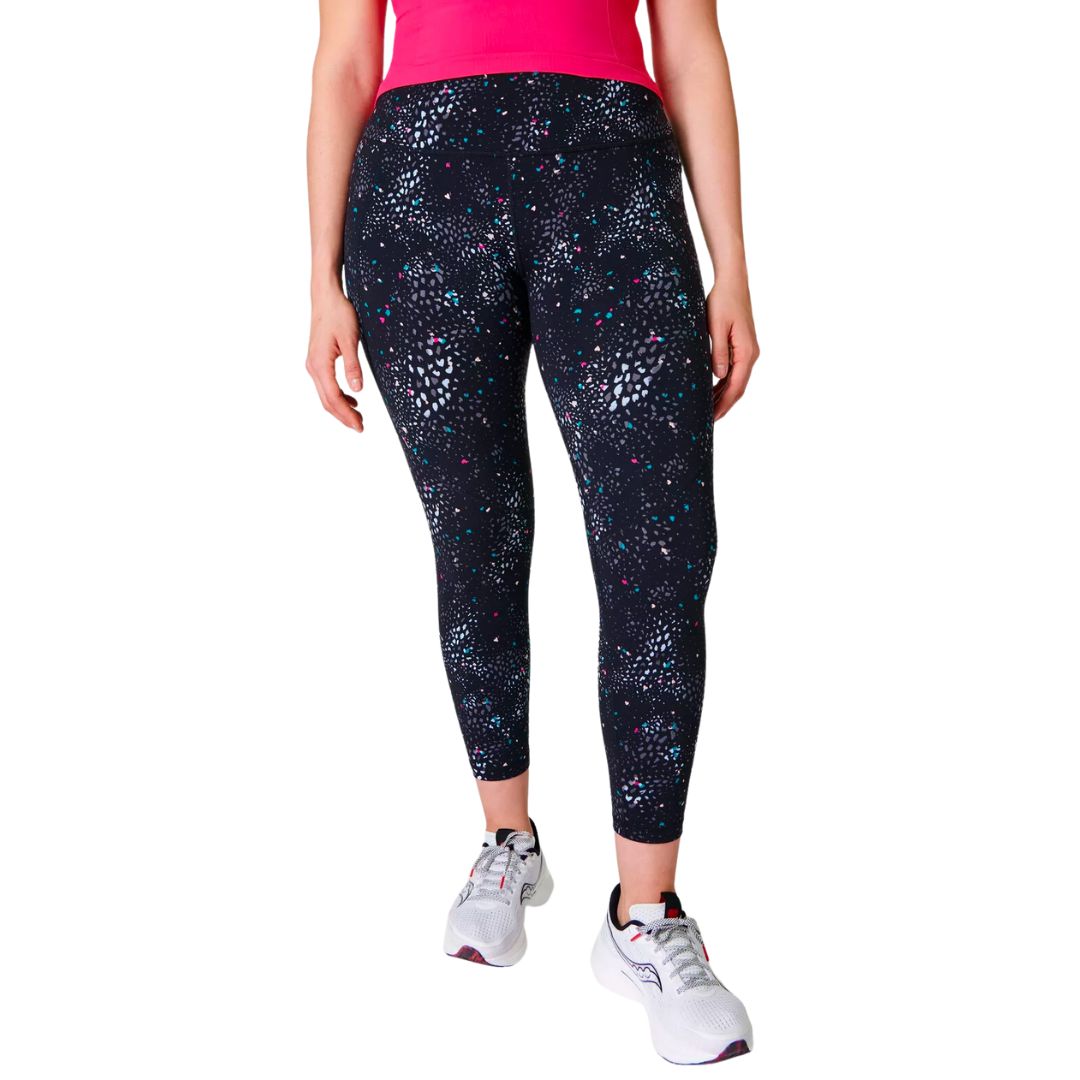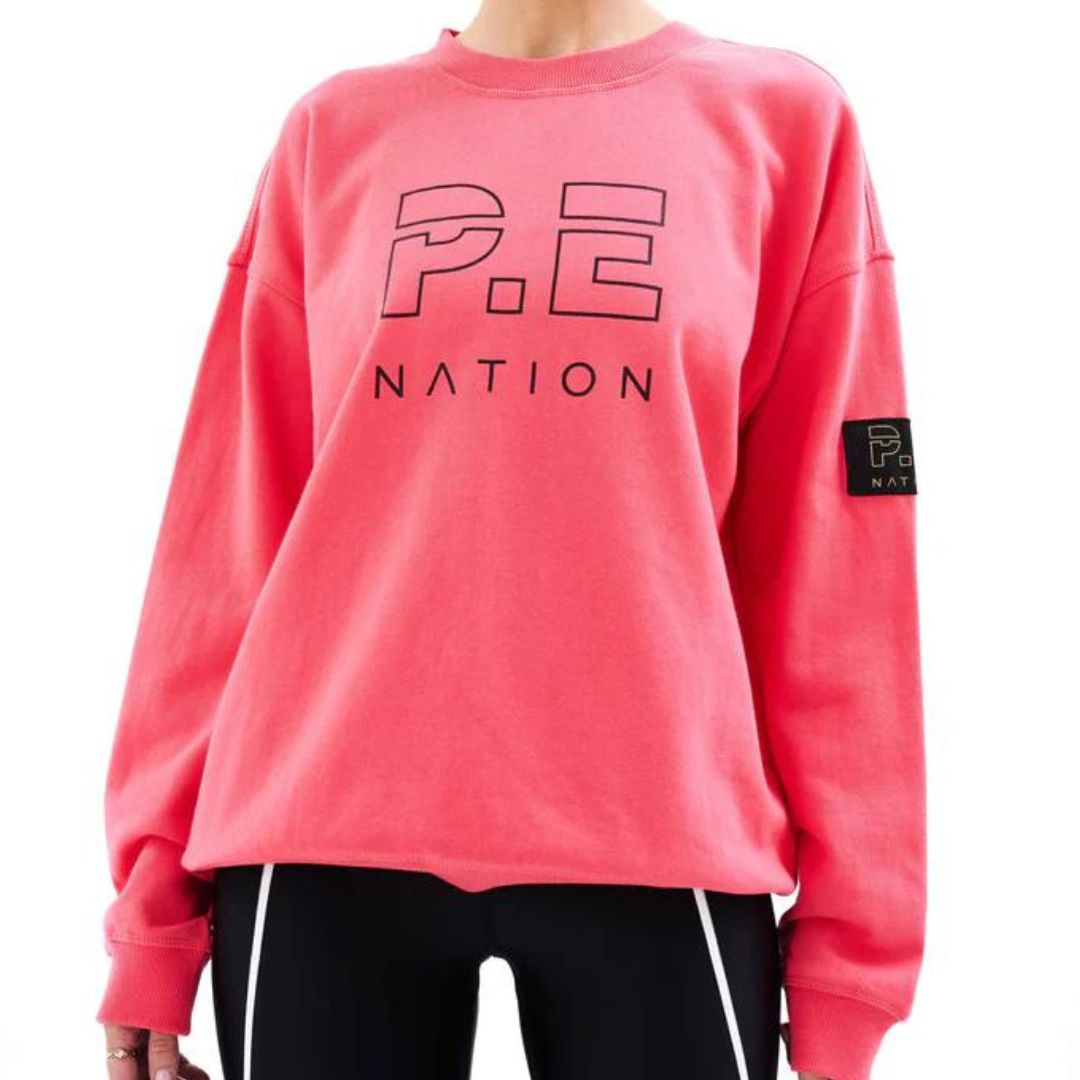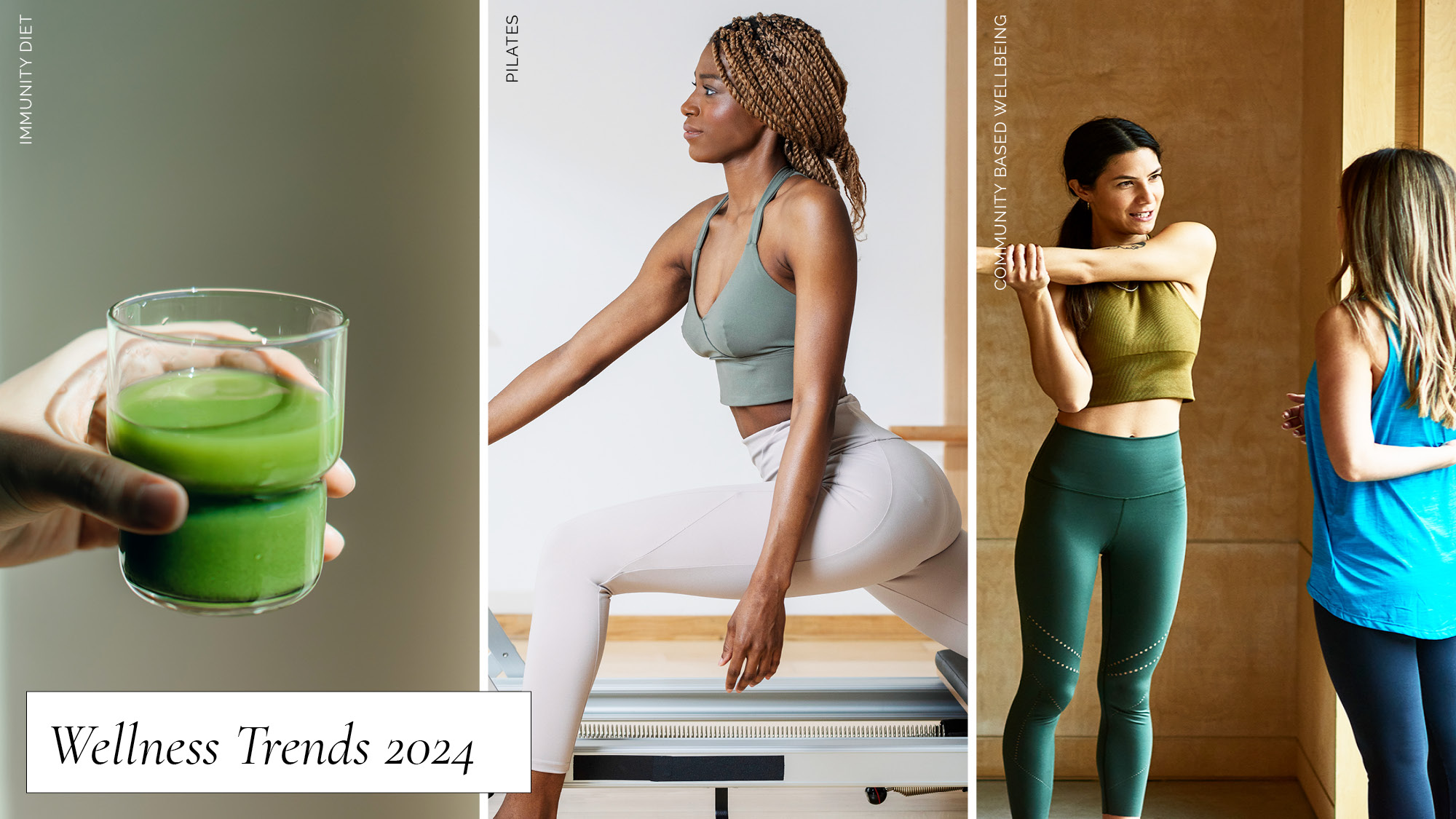
Celebrity news, beauty, fashion advice, and fascinating features, delivered straight to your inbox!
You are now subscribed
Your newsletter sign-up was successful
If you're someone who vowed to drink more water, run every week, or keep a morning journal this year only to - well, not, because life is busy and sometimes gets in the way, news flash for you: you're certainly not alone. One hallmark 2009 study found that it takes an average of 66 days to actually form a habit - in other words, 66 days to make or break your new routine.
If you're one of the many who've so far found it hard to incorporate new habits this year, as a Health Editor, I have a theory as to why. Too often in the past, I wrote lengthy lists of New Year's resolutions only to find it overwhelming and difficult to know where to begin. While I wanted to exercise more, I hadn't whittled down how I was realistically going to make this happen (putting the resolutions into motion, as it were).
That's where so many of us fall short - writing long lists of goals, rather than the actionable steps that might help to get us there. Not just that, but we take on challenges that are, in a nutshell, unsustainable (or just a bit miserable). Know this: real change is made from consistent, small everyday steps, not large overhauls which leave you feeling blue.
That's where this guide comes in - my edit of the wellness trends that are only going to get bigger this year. From (yet more) Pilates, to immune-boosting diets, to a move towards low and no alcohol and caffeine alternatives, 2024 looks set to be about embracing holistic health, moving your body in a way that works for you and your lifestyle, and enjoying the journey, too.
Here at Marie Claire UK, we're all about embracing health however that looks to you. While the below trends will undoubtedly be big this year, know this: you'll never stick to a habit or routine if you don't enjoy it. What's key is working out what works for both you and your body, so make sure you work that out before copying and pasting a diet or lifestyle that isn't a fit for you.
Keen to read more? Keep scrolling.
These wellness trends will be huge this year - eleven to have on your radar for 2024
1. Exercise snacking and microdosing workouts
While exercise snacking isn't new, it's certainly a wellness trend that looks set to get even bigger this year.
Celebrity news, beauty, fashion advice, and fascinating features, delivered straight to your inbox!
Never heard of it? According to David Wiener, training specialist at AI-based fitness and lifestyle coaching app Freeletics, exercise snacking is a new concept which includes short, frequent bouts of exercise throughout the day. Originally, this trend gained popularity on TikTok, but due to the vast amount of benefits people are starting to experience, it's become the "new way" to exercise" - so much so, that he reckons it's a wellness trend which will span 2024 and beyond.
These short bursts of physical activity typically last a few minutes at a time and are spread throughout the day, whenever you have a few minutes spare. "The idea is that these short bursts of activity add up, helping you to meet your fitness goals and contributing to the recommended thirty minutes of physical activity each day," he explains.
Sarah Aspinall , founder of Breaking Ballet, also predicts exercise snacking as a one-to-watch for 2024. "Fitness experts and scientific studies agree that fifteen minutes of exercise is enough to make a difference to our health - especially to perimenopausal and menopausal women," she shares. "Armed with this knowledge women are far more likely to commit to a short daily workout, rather than skipping exercise altogether because they can’t find a spare hour in their day."
Personal trainer and founder of the Power of Mum Nicole Chapman adds that short, sharp bursts of exercise are ideal for the time-poor. "We all lead busy lives, which is impacting our fitness routine," she shares. "In 2024, a sustainable health and fitness routine is going to be even more important for burnout prevention." She reckons eighteen minutes is the sweet spot when it comes to working out (and she should know, as she filmed over 600 online workouts for her app). "It's short enough to be achievable but very effective at getting results."
So, why is exercise snacking soaring in popularity right now? Short answer: it's achievable, attainable, and accessible to all, not to mention effective. "One study published in the Journal of Applied Physiology in 2018 found that short, intense bursts of cycling sprints were effective at burning calories and improving body composition which can help with weight management," Wiener goes on.
Keen to give it a go? Try this. "To incorporate exercise snacking into your daily routine, simply make sure your body is moving whenever you get the chance," he advises. This could look like:
- Taking a short walk around the office or your house during a break
- Doing a few bodyweight exercises like squats while you wait for the kettle to boil
- Taking the stairs instead of the lift.
2. Pilates - still
It's no news that Pilates is having a moment - wall Pilates, dance Pilates and Reformer Pilates have all gained a cult-like following in the past year. And for good reason - the low-impact workout has been proven to boost muscle tone, strength and mental health, often without even making you sweat.
And the trend will continue into this year, according to Hollie Grant, founder of Pilates PT. “Pilates has topped the New Year trends lists for a few years now - but it will only continue to grow in popularity in 2024," she shares.
So, why is it having such a moment? Simply, because people are realising how many benefits of Pilates there are. "Pilates improves your strength, endurance, mobility, flexibility, posture and balance, and equally can be a relaxing form of exercise that doesn’t over stress the body," she explains. "It’s also effective no matter how long you have, be that ten minutes or a full hour, making it ideal for those who are time-poor."
Bottom line: she reckons we'll see more trending viral Pilates hybrids doing the rounds, and consumers continuing to come around to the idea that we need to work with our bodies rather than against them.
3. Lifespan enhancing fitness and fitness for longevity
While this one might sound a bit out there, exercise to promote healthspan is set to be huge this year, or so reckons Aspinall. "Longevity culture is infiltrating the fitness industry," she shares. "Scientists have long been intrigued by the link between exercise and longevity and with emerging studies into the area being shared on social media and in mainstream media, individuals are learning about the profound impact of exercise on longevity and how it can positively transform our lives."
Thanks to popular TV shows like How to Live to 100 and Limitless with Chris Hemsworth - both of which focus on how to live for longer - and exercise physiologists, nutrition scientists and functional medicine practitioners like Dr Mark Hyman, Stacy Sims, Dr Mindy Peltz and Dr Gabrielle Lyon sharing their research and advice, we're seeing a revolution of exercise nutrition and performance. As Manon Sel, CEO of Harvest Series, points out, people are looking to increase not only their lifespan but their quality of life, too. "Individuals want to feel well, healthy, strong and able for as long as possible." she shares.
Rhian Stephenson, nutritionist, naturopath and founder of ARTAH, adds that The Science of Longevity has shown us that we have more influence on the process of ageing than we once thought. "It focuses not just on extending our life span, but more importantly, our health span - the number of years we spend in good health, disease free," she explains.
General practitioner and founder of HUM2N Dr Mohammed Enayat predicts the same, agreeing that if 2023 was the year of biohacking, 2024 will be the year of longevity. "With emerging longevity developments focusing on healthspan (in other words, extending quality of health for as long as possible) rather than lifespan, the goalposts are changing and so is our approach," he shares.
Not sure what the difference is? "While biohacking is a short-term approach that boosts biology momentarily, longevity is more based in medicine and manages individual risk in the long term to create a strategy that works based on how you’ll live in the long run," he continues.
This year, keep an eye out for a more personalised and integrated approach to wellbeing, including bio-hacking therapies and medical treatments that promise to boost whole-body wellness. "From biomarker tests delivering insights, to life stage-specific recommendations, to tips for reversing your biological age, longevity will become less about extreme and restrictive regimes (à la Bryan Johnson) and more about bringing your best self to life in a way that elicits a sense of autonomy over the ageing process," Enayat continues.
Blue zone living, anyone?
4. Immunity-boosting diets
Stephenson also predicts a shift in focus to nutrition to cultivate a robust, resilient immune system this year. "That'll include three things: the inclusion of a variety of nutrient-rich foods, a move away from immune-suppressing foods, and optimising the microbiome," she explains.
Did you know? The majority of our immune system originates in our gut, so ensuring that our microbiome is a focus will invariably improve immunity over time.
Her tips, if you're keen to boost your immunity via diet, are to increase:
- Fibre and fermented foods
- Plant variety, with a specific focus on vegetables, herbs, spices, and roots
- Vitamin A rich foods like good quality liver, fatty fish, good quality beef, and vitamin a precursors like orange and red colour vegetables.
Be mindful of the amount of excess sugar, emulsifiers and food chemicals, like those found in ultra-processed foods, too. "These have been shown to damage the gut lining and erode gut barrier integrity," she explains.
5. Next-gen probiotic supplements
According to Paul Chamberlain, Category Development & Product Training Director at SOLGAR, probiotics are one of the most exciting and fast-moving areas of research in the supplements arena. "You'll likely have heard of the gut referred to as the 'second brain' - the influence of the gut microbiota on health is being further revealed with each new study," he shares.
This year, expect to see next-gen probiotics specifically designed to stand the test of time as you digest them (think dual-release or alternative formats). "Whether you obtain your friendly bacteria from food or supplements, there is one common challenge that the organisms must overcome to be viable and useful - that is, to survive the harsh environment of the stomach so they can reach the intestine and exert their influence," he explains.
Expect to see new developments in manufacturing techniques which have made "delayed release" probiotics possible, shares Chamberlain. "These products are not only resistant to low pH, but also able to release healthy gut bacteria in a higher pH," he explains. Bottom line: "While more research is required to fully validate effectiveness, this is an exciting development in the probiotic arena."
6. Supplements for cortisol
I've written extensively on the impact cortisol can have on your body, and wasn't surprised to see experts including Jodie Relf, a registered dietician at MyOva, predict it as one of the wellness trends that'll continue to grow for 2024.
Her recommendations? “Ashwagandha has been proven to help lower cortisol levels, stress and anxiety, not to mention reduce sleeplessness. Do note, though - although the research that's been done to date looks promising, there are no long-term studies (aka, longer than three months) looking at the impact and safety of Ashwagandha's use," she shares.
Top tip: Most of the studies use a dose of 500 to 600mg/day, but the dietician warns that it's not suitable for those who have PCOS, prostate cancer, are pregnant or breastfeeding.
7. Functional drinks
Seen 'shroom hot chocolates, CBD-infused fizzy drinks and nootropic-boosted teas doing the round on social media? Brace yourself - functional drinks only look set to get more popular this year.
As Clarissa Berry, nutritionist at DIRTEA, explains, functional drinks are beverages that contain biologically active, health-promoting ingredients, often designed to elicit a certain effect in the body. "For example, a functional drink designed to calm the body and mind to prepare for sleep might contain herbs, nutrients and active compounds that are known to aid relaxation and sleep. Conversely, a functional drink designed to boost brain power would favour cognitive-enhancing ingredients."
She credits their continued rise in popularity to people being time-poor and health-conscious but also points out that popular culture seems to have caught on to the immense power of certain natural ingredients. "More people seem to be turning to natural solutions to their health goals," she goes on. "This is linked to the gain in momentum of holistic wellness, as people experience first-hand the benefits of a healthier, balanced, more natural lifestyle. Some functional drinks also offer healthier alternatives to alcohol and caffeine, which more and more people are keen to explore."
Some calming ingredients to look out for in functional drinks include:
- Calming: CBD
- Ashwagandha
- Reishi
- L-theanine.
If you fancy a cognition boost, she advises opting for:
- Lion’s mane
- Gingko biloba
- Rhodiola.
If you're keen to boost immunity, she advises:
- Turkey tail
- Turmeric
- Acerola
- Echinacea.
And finally, for an energy boost, opt for:
- Ginseng
- Cordyceps
- Green tea.
8. Alcohol and caffeine free alternatives
Leading on from the point above, Google searches for both "alcohol free" and "zero caffeine" are up significantly year on year (230% and 237%) - leading experts to predict what they're calling our "post-caffeine era".
According to nutritional therapist Cara Shaw, new data highlights a downward trend in coffee consumption among younger generations. "A recent survey by the Centre for Economics and Business Research found that Gen Z drinks just half a cup of coffee a day, compared to millennials who drink 1.3 cups and Gen X who drink 2.1 cups," she explains.
In short, she reckons millennials are switching from coffee to tea, matcha and even fully de-caffeinated options. Why? Well, because "more people than ever are struggling with their sleep quality and so search for aids to help," she details. "This constant struggle means more people are choosing to live without caffeine or swerve caffeinated drinks after noon, to ensure it won't impact their sleep or hamper their circadian rhythm."
9. Emotional and intuitive intimacy
When it comes to sexual wellbeing trends for the year, intimacy experts are predicting a rise in emotional intimacy and frank, honest conversations about self-love. New stats from Bumble predict it to become absolutely key when it comes to dating, too, with more than three in four UK women (80%) saying that it’s key that their partner understands emotional and physical intimacy.
“From navigating a challenging economic climate like rising bills and the cost of living to the complexities of maintaining a healthy, balanced lifestyle, it’s unsurprising that people are choosing to put themselves first in 2024," shares Dr Caroline West, Bumble sex and relationships expert. Case in point: the same survey found that one in two British women are consciously making more time for daily self-care, whether that's long hot girl walks, Sunday resets, or journaling.
What people deem fulfilling in a romantic relationship will also shift in 2024, she predicts. "People want more tender, caring and vulnerable connections. We’re witnessing a deprioritisation of physical attraction or chemistry, and instead, a need to develop an emotional connection and prioritisation of traits like honesty, compassion and empathy."
10. On demand fitness and levelled up at home workouts
Another fitness trend that you'll see continuing to rise in popularity this year? Virtual, home-based workouts that are accessible to all and affordable. Google search for “virtual workouts” is up 396% year on year, showing the shift in attitudes towards sweating in your living room. The pandemic is partly to thank for this one - when we could only workout at home, many learnt that home sweat sessions are less intimidating and can be just as effective, too.
“Post-pandemic, consumers are looking for online and on-demand fitness options - while in-person has its perks, we've had a taste of the flexibility home workouts can offer, Grant explains. "Most are time-poor and have to fit their workouts in sporadically. The on-demand offering works really well for this demographic as health and fitness can still be a priority while also allowing for an element of flexibility."
Wiener agrees that working out at home, or using your home as a gym or base for exercise will continue into 2024 and beyond. "The use of fitness apps is soaring, and continued advancements in technology, such as augmented reality (AR), virtual reality (VR) and Artificial Intelligence (AI), have enhanced the overall user experience of fitness apps and made workouts more personalised and engaging, levelling up at home fitness in 2024," he continues.
11. Psychedelic and transformational retreats
Last but by no means least, Sel reckons that you'll see transformational retreats promising to boost mental health and offer a fresh perspective popping up left, right and centre this year.
Perhaps the most "out there" of our expert's predictions, sure, but it won't come as a surprise after the sharp rise in interest in holistic therapies such as ice baths, functional mushrooms and reiki this year.
So, why the sudden interest in transformative experiences? And do they actually work? While they're certainly not for everyone, Sel's an advocate for the benefits they can reap. "Transformational retreats are rising in popularity because people are seeking more. In today's world, individuals crave holistic experiences that encompass not only physical well-being but also mental and emotional growth - we're realising that the same care is needed for both mind and body."
"Transformational retreats often attract those who are looking to embark on a journey of self-discovery, push boundaries, and connect with a broader sense of purpose," she goes on. "They often provide the perfect blend of rejuvenation, introspection, and the opportunity to redefine one's life, but can also offer valuable time, space and guidance to allow you to stop and ask yourself the important questions."
Whether it's working through emotion or past trauma, exploring sexual wellness or discovering your own personal pleasures, or finding your true self, these retreats tend to offer deep and thought-provoking workshops, individual time for introspection, community time to connect with others, and unique and powerful treatments and healings that help individuals to absorb and process the work, she details.

Ally is Marie Claire UK's Senior Health and Sustainability Editor, a well-regarded wellness expert, ten-time marathoner, and Boston Qualifying runner.
Utilising her impressive skillset and exceptional quality of writing, she pens investigative, review and first-person pieces that consistently demonstrate flair and originality.
As well as writing, Ally manages a team of freelancers, oversees all commissioning and strategy for her pillars, and spearheads the brand's annual Women in Sport covers, interviewing and shooting the likes of Mary Earps, Millie Bright, and Ilona Maher. Shortlisted for three BSMEs and winning one in 2022, Ally lives and breathes her verticals: her eye for a story and connections within the wellness sphere are unrivalled. Follow Ally on Instagram for more.

